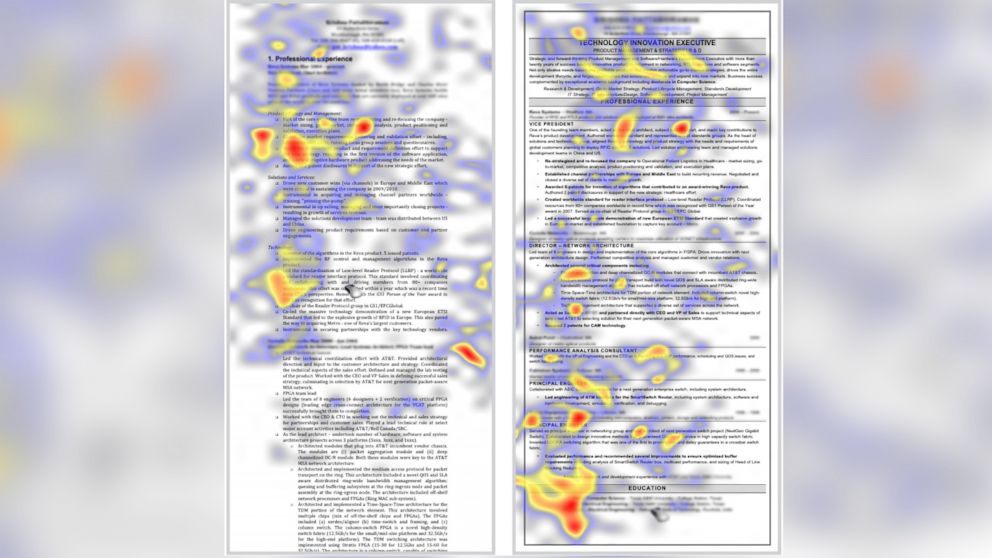Cruel Truth About Recruiters and Your Resume
Recruiters say they spend 5 minutes on your resume. New study shows they don't.

May 19, 2014 -- When sizing up your resume, recruiters estimated they spend 4 to 5 minutes on average staring at it.
Turns out, though, they’re wrong. Very wrong, according to jobs-matching service TheLadders.
TheLadders used “eye-tracking” software to study the way recruiters actually vet resumes. TheLadders’ jobs search expert, Amanda Augustine, calls the results “frightening and shocking.”
Your resume gets just 6 seconds worth of scrutiny.
In that eye-blink, your fate is sealed. Either you’re going to graduate to the “hmmm, this one might be worth a phone call” pile, or your resume is off to become land-fill.
Jill Abramson tells Wake Forest grads she's looking for a job, too
The study measured not just how long recruiters looked at a given resume, but what elements of a resume merited the most, or least, of their attention, Augustine said. From this data, what Augustine calls a “heat map” was created, showing a resume’s cold spots and hot spots.
Recruiters spent 80 percent of their time on the following “hot” details, in descending order:
Name
Current title/company
Previous title/company
Previous position start and end dates
Current position start and end dates
Education
The rest of what you provided -- the stuff about your coaching Little League, the handsomely-shot photo of you -- you might just as well have skipped.
“We were especially surprised about the photos,” Augustine told ABC News. There are venues, she said, where having a photo might work to your advantage -- in some online self-promotion, you might want visitors to click on it. But on a piece of paper, she said, all a photo does is consume precious few seconds of attention that should be going to your qualifications for the job.
Temporary jobs on rise in today's shifting economy
A photo doesn’t tell a recruiter if you’re qualified or not. Plus, plenty of recruiters won’t even look at resumes with photos, she said, since to do so can leave them liable to charges of gender, age or race discrimination.
“You want your information to be organized,” Augustine said, with the most important stuff (the items listed above) high up. Unless you’re a recent grad, put your education last.
Bullet points are fine, but use them sparingly -- to draw attention to only the most important items. Dense blocks of text make it hard to digest information quickly, so avoid them.
Less is more, Augustine said. Your resume should be just an “elevator pitch” -- you key strengths, put succinctly, framed by plenty of white space.



